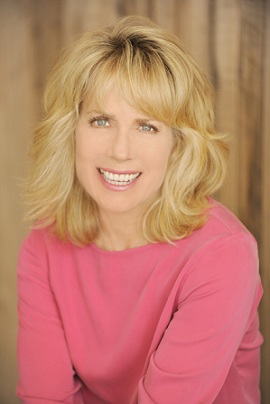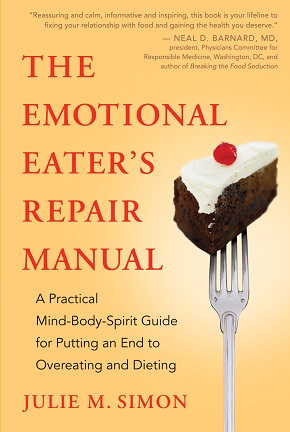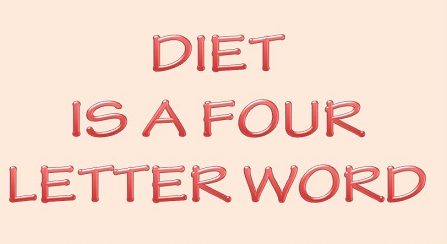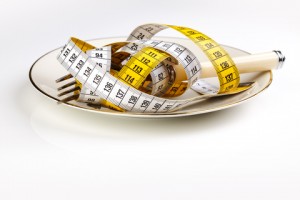Julie Simon Shows You How to End Compulsive Eating and the Diet Mentality
Do you struggle with compulsive emotional eating, including binge eating when you’re not really hungry or frequently reaching for junk food instead of nourishing choices? If so, you may have developed a love/hate relationship with eating.
On the one hand, food is always there for you, and can entertain and soothe you. But at the same time, you feel out-of-control and so unhappy after stuffing down more than you need. You have probably tried many diets and maybe even emptied your wallet on an unsuccessful quest for an easy, trendy fix. Yet you find yourself with weight ups-and-downs (more up than down) and a painful struggle between “I want” and “I should,” with guilt never far away.
I know, I lived these conflicts myself through my early adult years. My friend Julie Simon, a psychotherapist and life coach, also struggled with these same issues. Lucky for us, Julie developed an approach to put a permanent end to unhealthy eating driven by addictions, body imbalances, and painful emotions.
Julie’s book, The Emotional Eater’s Repair Manual: A Practical Mind-Body-Spirit Guide for Putting an End to Overeating and Dieting, shares her discoveries. She articulates how to end your emotional eating for good by developing the tools you need to grow beyond it. Julie’s wise and compassionate coaching
guides you to build self-care skills and spiritual practices that nourish you on every level.
Julie told me why she wrote her guide. “Most diet books and weight loss programs focus exclusively on reduced-calorie eating plans and exercise regimens. They attempt to apply external solutions to internal problems and fail to address emotional and spiritual hunger and body imbalances. I created the 12 Week Emotional Eating Recovery Program and wrote this book because I wanted to offer an alternative to dieting that would address these mind, body and spirit imbalances.”
I asked Julie about the diet mentality that rules the lives of so many. “When I use the term diet mentality, I’m referring to deeply entrenched thoughts and habits related to controlling food intake and body size. For example, you might be:
• constantly thinking about what you’ve eaten, what you’ll eat and what diet you’re going to follow to lose weight;
• regularly counting and restricting calorie, carbohydrate and/or fat grams;
• eating according to “rules” rather than body hunger, i.e., not eating past a certain time of night, fasting, under eating, or skipping meals when you feel fat or after you’ve overeaten;
• avoiding activities that involve food and eating;
• ignoring hunger signals by drinking extra amounts of water, tea, coffee or diet sodas;
• feeling guilty when you eat something off your current diet plan;
• using diet pills, caffeinated beverages and cigarettes to reduce your appetite;
• over-exercising to compensate for perceived overeating or weight gain;
• overusing laxatives and diuretics to combat overeating or bloat and
• excessively concerned about your body size which may manifest in weighing yourself daily or multiple times per day.”
Julie recommends a whole foods, plant-based diet as an important part of recovering from emotional eating. When you thrive on vegetables, fruits, beans, and whole grains, your hunger signal works as it is designed to, guiding you on when to eat and when to stop. This is the diet you are designed for, as an
ever-growing mountain of research demonstrates.
Since a whole foods, plant-based diet is optimal, why don’t most people simply adopt it right away, ending our national nightmare of epidemic obesity and chronic disease? Julie explores the many reasons you may be driven to make unhealthy choices, and how you can nurture yourself to grow beyond compulsive emotion-driven eating. Using food as a comfort, distraction, and friend is often fueled by lack of nurturing in your formative years.
If you face unhealed trauma from childhood and major stresses now, you can use the methods in The Emotional Eater’s Repair Manual to learn to care for yourself in a healthy and effective way, amplifying your Inner Nurturer and quieting your Inner Critic. Julie’s caring voice guides you with five self-care skills, five body-balancing principles, and five soul-care practices in an integrated approach to develop as a person.
You grow out of binge eating and dieting as these practices lose their grip on your mind, body, and spirit. Julie outlines practical steps to choose the foods your body is designed for, get optimal exercise and sleep,
and learn to listen to and balance your body signals and chemistry. As she points out, “It’s best if you can shift your focus to gaining skills and practices rather than to losing weight. Over time, the weight will come off and stay off. And losing weight tends to be somewhat effortless with this approach.”
The Emotional Eater’s Repair Manual shows you a long-run solution to weight issues and effective self-care skills that will serve you in many areas of your life. You’ll fell nourished and understood just reading it.
Intrigued? Now you can use our Whole Foods Blog Finder to target informative, fun postings on whole foods, plant-based diets. Quick information at no cost!
Blog posting by Janice Stanger, Ph.D. Janice authored The Perfect Formula Diet: How to Lose Weight and Get Healthy Now With Six Kinds of Whole Foods. The book describes a whole foods, plant-based eating plan that can prevent, and even reverse, most chronic disease. Janice is so grateful to have ended her binge eating, and wants you to find an approach to develop a healthy relationship with food.
Tags: binge eating, compulsive eating, emotional eating, Julie Simon, lose weight, Plant-based nutrition, The Emotional Eaters Repair Manual, weight loss, whole foods plant-based diet









